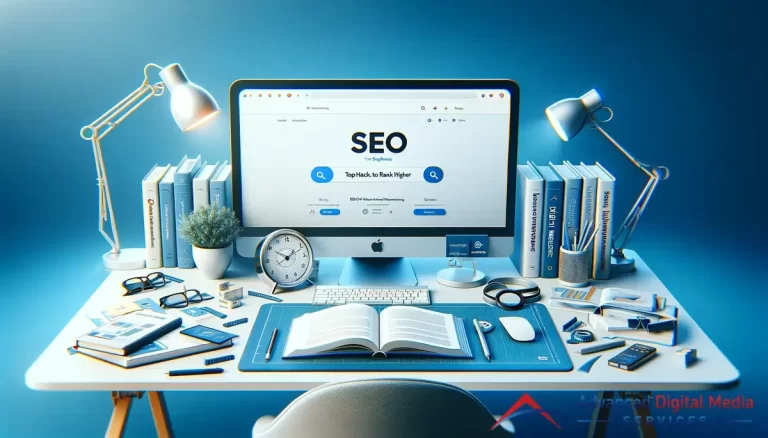The Search Engine Optimization (SEO) landscape constantly changes, and so does on-page SEO. It’s essential to think more than just the meta description and title to optimize pages for major search engines, such as Google, Yahoo, and Bing.
You have many options and SEO elements to focus on. First, you should have a complete on-page SEO strategy that includes the best practices and innovative optimizations to drive long-term success.
However, if you are limited by budget or time, you might need to prioritize your efforts and show quick wins in order to justify additional investment. This page will provide you with tips and context on how to tweak your on-page SEO factors for better rankings.
What Is On-Page SEO?
Before we outline the on-page SEO factors that need to be optimized to produce better content, let’s get the basics down first. Let’s define what on-page SEO is and discuss why it’s important.
On-page SEO refers to the process of making changes to the pages on your website to improve their rankings on search engine results pages. It should be one of your first priorities when implementing SEO.
An on-page SEO analysis should be done after you complete an in-depth SEO audit, keyword research, and competitor analysis—these pieces will help you decide what you should do from an SEO perspective.
There are different on-page SEO checkers you can use. Some of them are Google Search Console, Ahrefs, and Semrush. These tools can provide you with an on-page SEO checklist for you to know the factors you need to optimize.
Why Is Optimizing On-Page SEO Factors Important?
Google continuously changes its search algorithm. It ran 800,000 experiments in 2021 and updated its search algorithm over 5,000 times. However, even with its ongoing improvements, it is not foolproof. It still needs to be able to understand new content. This is where on-page SEO comes in.
On-page SEO is essential since it allows search engines to understand your website and identify whether it is relevant for a query. Search engines are becoming more sophisticated, and there is an increased focus on relevance and semantics on search engine results pages.
Without on-page SEO, your website might get pushed down the search results. You might also miss out on a lot of great opportunities to convert prospects into regularly paying customers or clients. These are all the reasons that make on-page SEO important for all businesses.
On-Page SEO Factors to Optimize to Provide Top-Notch Content
It’s essential to create an on-page SEO checklist to have a clear goal in mind. To help you get started, these are five on-page SEO factors that you can test and optimize in case your pages are not performing well:
1. Written Content
Your content is the most important on-page SEO factor you should be focusing on. You need to ensure that every page you write is valuable to your audience, especially if your primary goal in writing content is to convert them into paying customers.
You also need to ensure that your keyword research for all your pages is strategic and in-depth. Your audience won’t be able to connect with your content if you don’t have a clear focus.
Use HTML subheadings for structure and to call out relevant signals to search engines and readers. Additionally, we know E-A-T is important for YMYL topics. However, any web content could benefit from more expertise, authority, and trustworthiness.
2. Title Tags
The title tag, also known as the “title,” is what search engines use to determine the content of your page. Google has confirmed that the title tag should focus on the keyword your page is targeting.
Your title tag should include the phrase “On-Page SEO Factors to Optimize” if you are targeting that specific keyword. Doing so will make your page more visible in search results, and it will be easier for your audience to find it.
3. Page URL
Both SEO and user experience are influenced by your URLs. Each webpage generates its own URL. For this reason, you need to take the time to ensure that your URL contains the correct keywords. Include your target keyword in your URL.
If you’re targeting “On-Page SEO Factors to Optimize,” your URL should look like this:
HTTPS://www.advdms.something/on_page_seo_factors_to_optimize
Inserting keywords in your URLs makes it easy for Google to determine your content and how it should rank on search results. Make sure your URLs are short and straight to the point. Search engines find long URLs difficult to understand.
Additionally, internet users face challenges when searching for long URLs. Your URLs should not be difficult to understand and remember. This will make it easier for your audience, should they ever need to return to a particular page, to use the search bar.
4. Image Alt Text
Although content creators are becoming more aware of the importance of visual elements to websites, many of them neglect to include video and image alt texts in their on-page SEO.
An alt text is the description of the image or video behind the visual element. Because this on-page SEO factor is used to provide an alternative view for viewers, it doesn’t usually appear on a functioning website.
For instance, if a photo fails to render correctly after your webpage loads completely, the alt text will take its place. This allows the viewer to still see what you are trying to convey.
Include your target keyword in your alt text. Not doing so will cause search engines to not index your visual elements, which can be detrimental to your page when internet users decide to do an image or video search instead of the usual Google search.
Alt text also makes sure that your content is available to all who view it. It is the easiest way for a screen reader to know if a page has audio or video. It can make certain content more accessible for users with hearing or visual impairments.
5. External and Internal Links
Internal links are links that redirect internet users to other pages on your website. These links help search engines understand the context of a page and how it is related to other pages.
On the other hand, external links are links that redirect users to other pages outside of your website. These links are used to build trust with your readers by linking to trusted sources and providing information about complex topics or less-understood subjects.
Advanced Digital Media Services Is Here to Help
Now that you already know the importance of optimizing on-page SEO factors, it’s essential that you optimize your pages to improve your content and achieve higher rankings on search results pages.
Advanced Digital Media Services is here to help you. We provide on-page SEO services that involve regular on-page analysis. Our team of experts can optimize your website’s on-page SEO elements regularly.
We understand that running a business is already a challenging task, so we’re here to help you. Our team can help you navigate the digital marketing landscape while you focus on your business.
With our services, you are sure to stay on top of search engine results pages. Contact us today, so our Denver SEO experts can help spearhead your digital marketing campaign and dominate the digital world.





